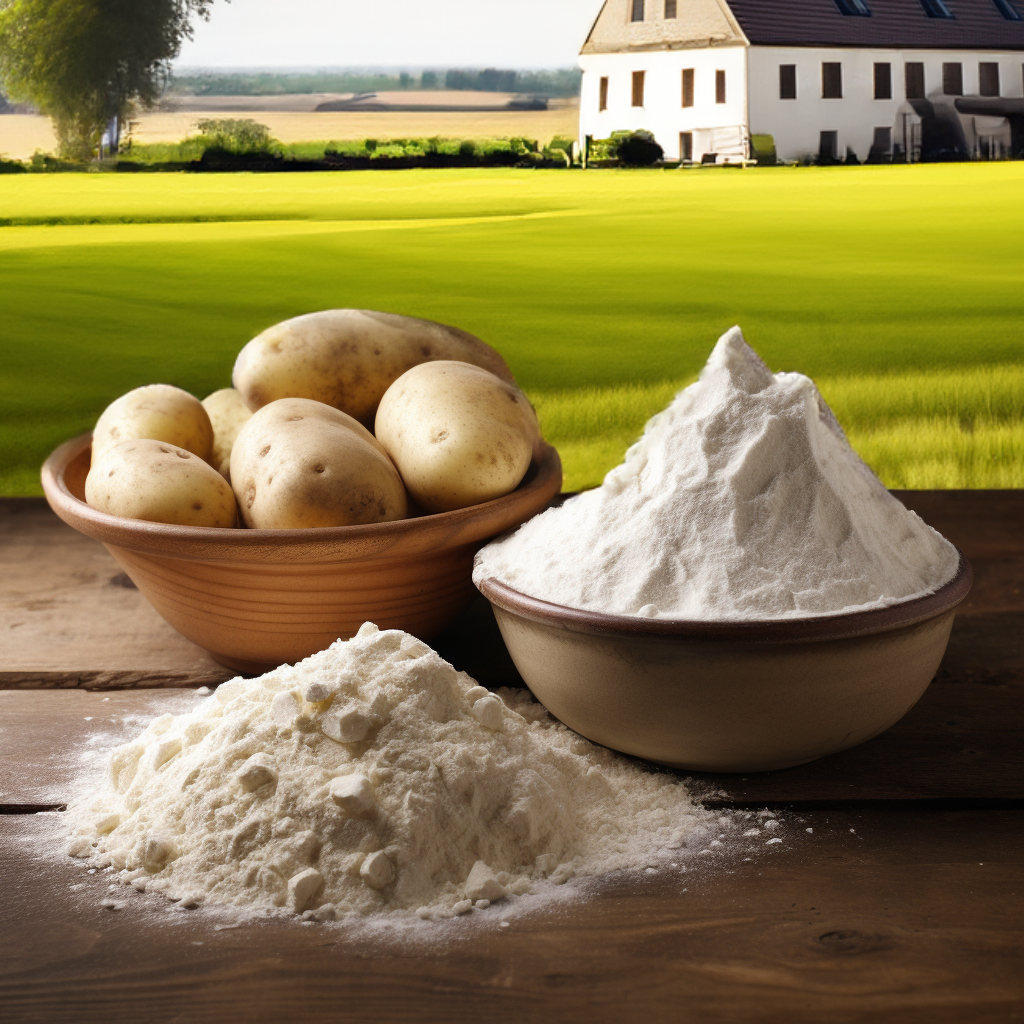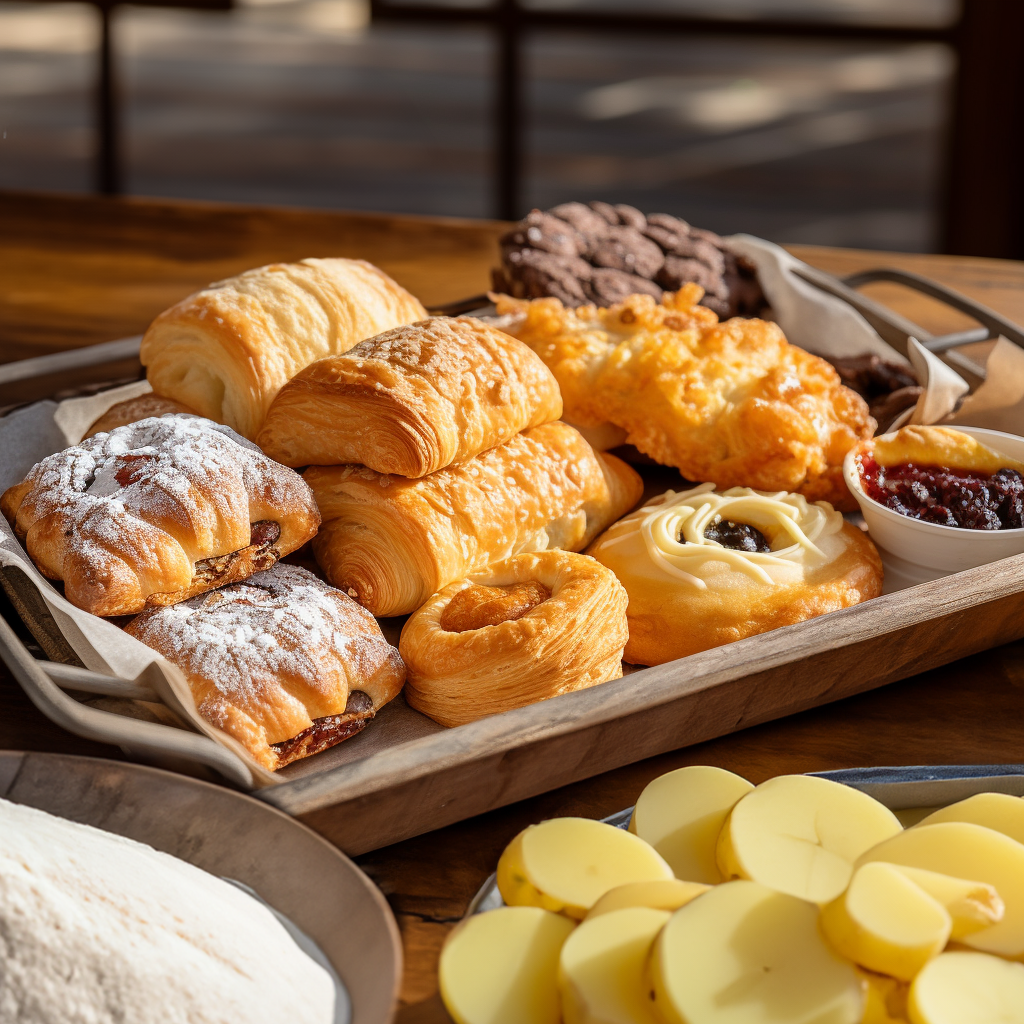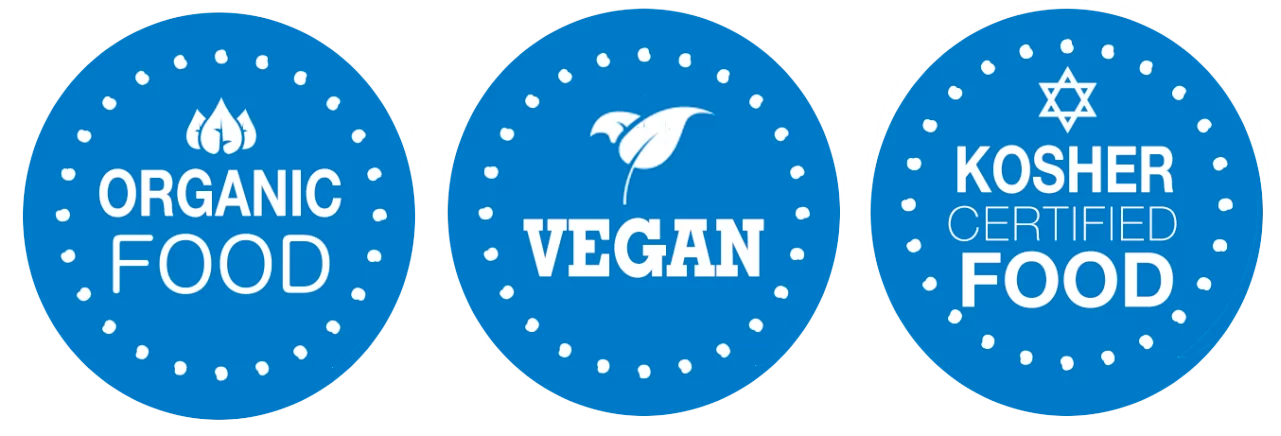What is the Difference Between Potato Starch & Potato Flour?
 What’s the Difference Between Potato Starch vs Potato Flour? The main difference between them is that potato starch is made from the starchy part of potatoes, while potato flour is made from the entire potato (including skin).
What’s the Difference Between Potato Starch vs Potato Flour? The main difference between them is that potato starch is made from the starchy part of potatoes, while potato flour is made from the entire potato (including skin).
Potato starch has a finer texture than potato flour and produces fluffier baked goods with a lighter crumb. It’s also better for thickening sauces and gravies, as it has a neutral flavor.
Potato flour is more dense and heavy, and its strong flavor can overpower other ingredients in a recipe. It’s best used to add body and texture to baked goods such as breads, scones, and pastry crusts. Ultimately, the choice between potato starch vs potato flour depends on the desired outcome
How is Potato Starch Produced? Potato starch is produced by grinding up peeled and washed potatoes, separating out the starch granules, and then drying them. The process can take several days to complete.
How is Potato Flour Produced? Potato flour is produced by grinding up peeled and cooked potatoes. The potatoes are then mashed and dried to form a powdery flour. This process happens more quickly than the production of potato starch, as it takes less time for the potatoes to dry out.
**Both potato starch and potato flour can be used in gluten-free baking, making them staples for those with dietary.
 Potato starch and potato flour are both commonly used ingredients in baking recipes. They are both useful for providing structure, texture, and volume to baked goods. Potato starch has a more neutral flavor than potato flour, making it ideal as a thickener or binder in recipes. Potato starch is used when baking gluten-free items like pancakes, muffins, and pies. Potato flour is most often used in breads, cakes, cookies, and other baked goods as a substitute for wheat flour. It adds moisture and a slightly sweet flavor to recipes. Both potato starch and potato flour are essential ingredients for creating delicious gluten-free treats!
Potato starch and potato flour are both commonly used ingredients in baking recipes. They are both useful for providing structure, texture, and volume to baked goods. Potato starch has a more neutral flavor than potato flour, making it ideal as a thickener or binder in recipes. Potato starch is used when baking gluten-free items like pancakes, muffins, and pies. Potato flour is most often used in breads, cakes, cookies, and other baked goods as a substitute for wheat flour. It adds moisture and a slightly sweet flavor to recipes. Both potato starch and potato flour are essential ingredients for creating delicious gluten-free treats!
Potato flour is also used in baking as a binding agent, but since it has a stronger flavor, recipes often call for only small amounts.
Regardless of which one you choose, potato starch and flour are both good substitutes for wheat flour in gluten-free baking. However, it is important to remember that they cannot be used as 1:1 replacements in recipes because they have different properties than wheat flour. For instance, potato starch does not provide structure like wheat flour does and can create a gummy texture if used alone in a recipe. Additionally, potato flour absorbs more liquid than wheat flour does so using too much can make your baked goods heavy and dense. By figuring out the right combination of starches and flours for a recipe, you can achieve the desired texture and flavor for all of your gluten-free baking projects.
If you are seeking a bulk food ingredient supplier that can deliver potato starch or potato flour, contact Lakeside Food Sales. We provide solutions for food and beverage manufacturers that require the best food ingredients for their food products and recipes!
Happy baking! 🙂


